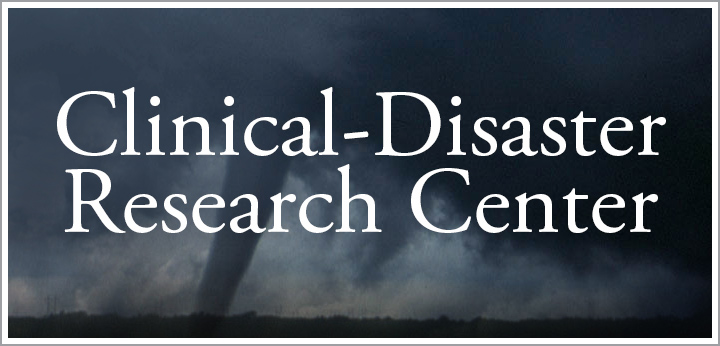The University of Mississippi Clinical Disaster Research Center in the Department of Psychology plays a vital role in mental health disaster preparedness, response, and recovery efforts.
“Disaster mental health is a relatively new field of psychological science and practice as it relates to disaster preparedness, impact and recovery,” said Stefan Schulenberg, associate professor of psychology and Center director, whose 16 years of training and experience include Hurricane Katrina, the BP Deepwater Horizon oil spill, and tornadoes of 2011.
Even before the Center’s establishment in autumn 2012, a team of undergraduate and graduate students served with Schulenberg helping after natural disasters, conducting research to understand the effects of the oil spill on Mississippi coastal residents and working to enhance intervention and outreach efforts for a range of concerns. “Throughout the Gulf oil spill research it seemed apparent that the next logical step was to establish an identity, an integrated purpose bringing together research, teaching and service efforts” he said. “With the Center, we hope to continue our work raising awareness of an important area that people don’t often think about.”
“While physical threat is emergency responders’ first concern, the effects of trauma on mental health are frequently unrecognized or untreated. “People have a tremendous resilience to overcome adversity,” he said. “However, individual response to a disaster can vary widely. Some may experience problems that are short term, while others may experience problems that are longer lasting. Still others may experience what is called post-traumatic growth, learning how to respond to their experiences in adaptive ways.”
Schulenberg teaches Disasters and Mental Health, an undergraduate course, and plans to develop a graduate seminar while continuing to build the Center with a focus on training and education.


